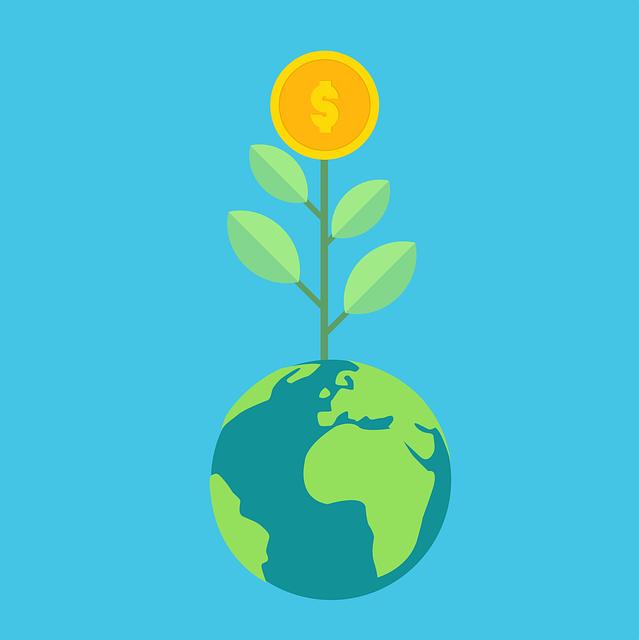In a nation rich with cultural diversity and historic resilience, Pakistan stands at a crossroads, where the paths of opportunity and adversity often diverge sharply. As the echoes of economic growth resonate across urban landscapes, an unsettling reality looms beneath the surface: the widening chasm of social inequality. This disparity, shaped by a complex interplay of factors such as education, gender, and access to resources, threatens not only the fabric of society but also the very essence of shared humanity. In this exploration of “Bridging Divides,” we delve into the systemic roots of social inequality in Pakistan, examining the barriers that keep communities apart and the collaborative efforts that aim to weave a more unified social tapestry. As we navigate the intricate narratives of marginalization and empowerment, we seek to illuminate pathways toward a more equitable future for all Pakistanis, where every voice is heard and every potential embraced.
Exploring the Roots of Social Inequality in Pakistan
Social inequality in Pakistan is deeply rooted in a complex web of historical, economic, and cultural factors. Colonial legacies have left a profound impact, shaping land ownership patterns and education access. As the nation navigated post-independence challenges, various socio-political dynamics emerged, further entrenching disparities. Today, a significant portion of the population is relegated to fringes, grappling with the impacts of urban-rural divides and class stratification. The disparity in educational opportunities weakens the social fabric, perpetuating cycles of poverty and limited upward mobility.
Furthermore, gender inequality amplifies these divides, with women often facing significant barriers to economic participation and decision-making. This leads to a society where inherent inequalities are not only economic but also deeply social and cultural. Acknowledging these multifaceted roots is crucial for a coordinated approach to bridging gaps. To better illustrate this complexity, the following table highlights some pivotal aspects influencing social inequality:
| Aspect | Impact on Inequality |
|---|---|
| Education Disparities | Limited access for rural and low-income groups |
| Gender Discrimination | Reduced economic participation of women |
| Health Care Access | Worsened health outcomes for marginalized communities |
| Urban-Rural Divide | Increased poverty rates outside urban centers |

Empowering Marginalized Communities through Education and Skills Development
Investing in education and skills development offers a transformative pathway for marginalized groups in Pakistan, breaking the chains of systemic inequality. The impact of a well-structured educational framework extends far beyond traditional classrooms; it fosters critical thinking, entrepreneurial spirit, and community leadership. Access to quality education equips individuals with essential skills that pave the way for sustained economic improvement, enabling them to contribute meaningfully to their society. By focusing on inclusive education initiatives, we can ensure that even the most vulnerable populations—such as women, ethnic minorities, and individuals from low-income backgrounds—are offered opportunities to succeed and thrive in a rapidly changing world.
Moreover, empowering disadvantaged communities through vocational training and mentorship programs can significantly enhance their socioeconomic status. These programs should emphasize not just theoretical knowledge but also practical skills that align with market demands, thus bridging the gap between training and employment. To visualize the potential impact, consider the following table showcasing various educational initiatives and their respective benefits:
| Initiative | Target Group | Key Benefit |
|---|---|---|
| Women’s Literacy Programs | Rural Women | Boosts family income and community status |
| Technical Skill Workshops | Young Adults | Enhances employability in local industries |
| Entrepreneurship Training | Minority Groups | Encourages self-employment and innovation |
Through collaborative efforts between government, NGOs, and private sectors, we can tailor these educational and skills development programs to address the unique challenges faced by marginalized groups. The collective aim should be to create a sustainable ecosystem that promotes equality and offers a chance for every individual to realize their potential and contribute to society. The journey toward a more equitable Pakistan begins with the empowerment of its most vulnerable communities through robust educational opportunities.

Promoting Inclusive Economic Growth for a Fairer Society
As Pakistan grapples with the challenges of social inequality, it becomes imperative to catalyze initiatives that foster inclusive economic growth. By creating opportunities and removing barriers, we can empower marginalized communities. Key strategies to achieve this include:
- Investing in education and vocational training to enhance workforce skills.
- Supporting small and medium enterprises (SMEs) that contribute significantly to job creation.
- Implementing equitable taxation policies that redistribute wealth more effectively.
These approaches not only address immediate economic disparities but also cultivate a sense of ownership and agency among those at the fringes of society.
Furthermore, fostering partnerships between public and private sectors can lead to sustainable economic models that prioritize inclusivity. Collaboration with local NGOs can amplify community engagement, ensuring that initiatives are tailored to specific needs. Consider the following table that illustrates potential impact areas:
| Impact Area | Potential Outcomes |
|---|---|
| Education | Increased literacy rates and skilled labor |
| Healthcare | Improved public health and productivity |
| Infrastructure | Enhanced connectivity and economic activity |
Promoting inclusive growth requires a concerted effort across various sectors, ultimately transforming the landscape of social equality in Pakistan.

Fostering Dialogue and Cooperation to Bridge Divides
In a society marked by stark divides, fostering genuine dialogue is an essential first step towards addressing social inequality. Encouraging open conversations among diverse groups can help cultivate understanding and empathy, which are critical for long-term change. Community forums, workshops, and public discussions can serve as platforms where individuals from different backgrounds can share their experiences, perspectives, and solutions. By utilizing these spaces, we can dismantle preconceived notions and build bridges across social and economic barriers. Engaging local leaders and influencers to facilitate these dialogues can significantly amplify their impact and create a ripple effect throughout the community.
Cooperation among various stakeholders is vital in crafting effective initiatives that address the root causes of inequality. This endeavor requires not only government initiatives but also engagement from the private sector, non-profit organizations, and community groups. Collaborative projects that focus on education, job training, and social services can be tailored to meet the specific needs of marginalized populations. Below is a simple overview of potential stakeholders and their roles in this collaborative framework:
| Stakeholder | Role |
|---|---|
| Government | Policy making and funding |
| Private Sector | Job creation and investment |
| Non-Profit Organizations | Community outreach and support |
| Community Groups | Grassroots engagement and advocacy |
By combining the strength of various stakeholders, we can create a multifaceted approach that not only bridges divides but also empowers individuals and communities to thrive. The goal is not only to alleviate existing inequalities but also to establish a foundation for mutual respect and shared purpose that can endure over generations.
Insights and Conclusions
As we navigate the intricate tapestry of Pakistan’s diverse society, it becomes increasingly vital to acknowledge the deep-seated issues of social inequality that threaten to unravel the fabric of our communities. Bridging these divides requires more than mere recognition; it demands a collective commitment to fostering understanding, empathy, and collaboration across all strata of society.
In the face of challenges, there lies immense potential for growth and unity. By embracing dialogue and innovative solutions, we can create pathways that not only enhance the well-being of marginalized groups but also enrich the entire nation. The road ahead may be fraught with obstacles, yet it is a journey worth undertaking — one that can lead us toward a more inclusive and equitable future.
As we conclude, let us remember that bridging divides is not solely the responsibility of leaders or policymakers; it begins with each of us. By raising our voices, challenging biases, and supporting efforts for change, we can be catalysts for a society where opportunity and justice are not privileges of the few, but the birthright of all. Together, we have the power to redefine our narrative and ensure that the story of Pakistan is one of resilience, collaboration, and hope in the face of social inequality.



